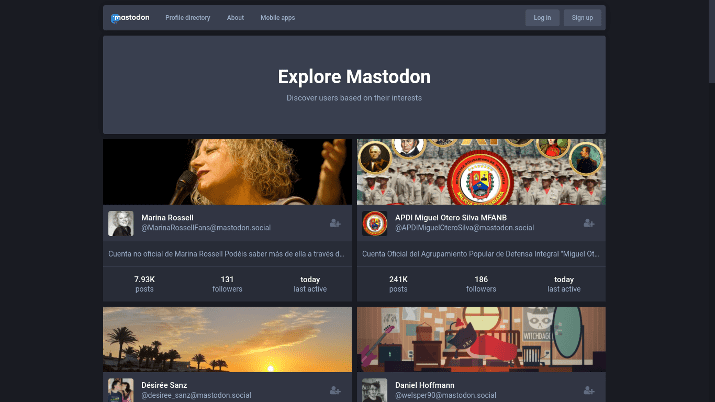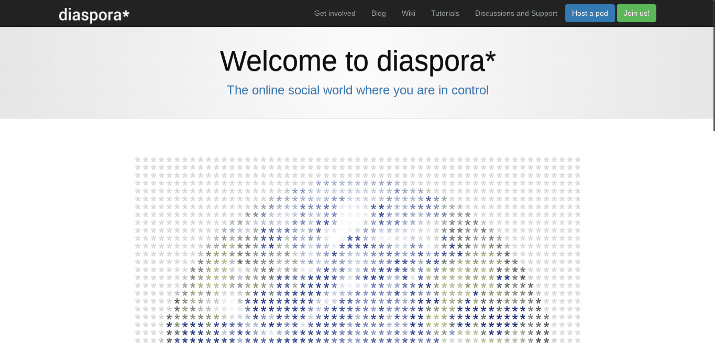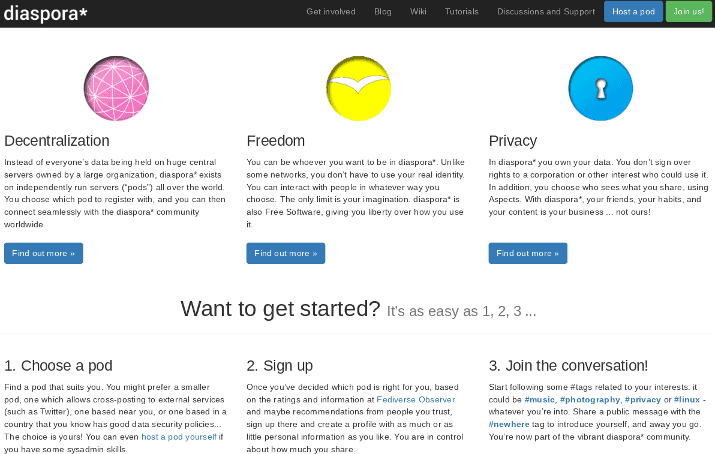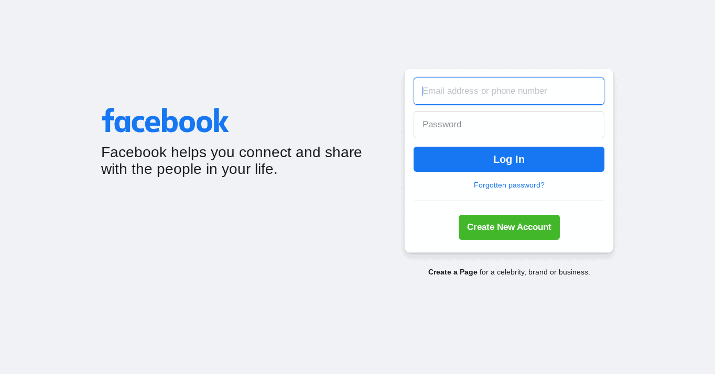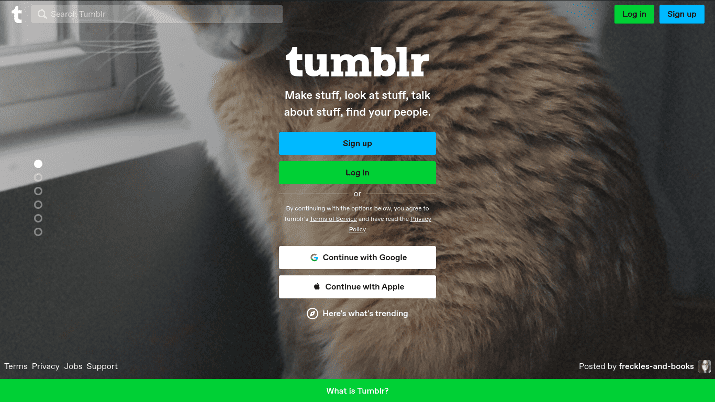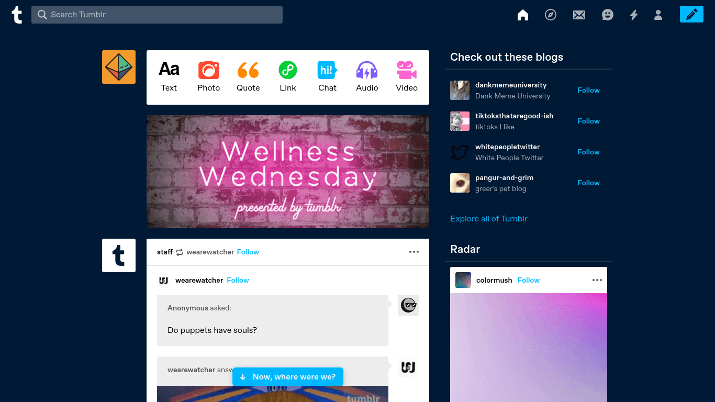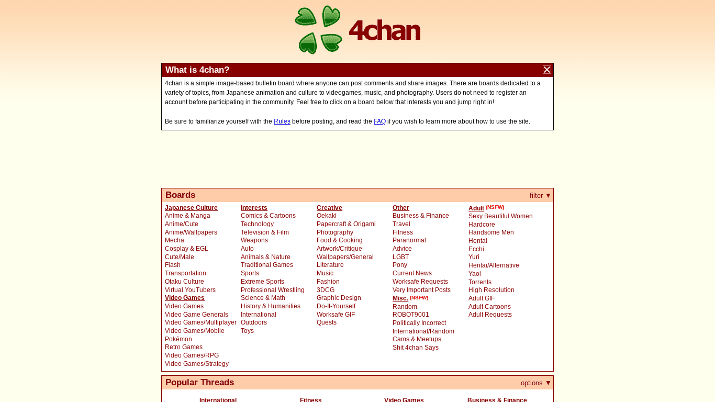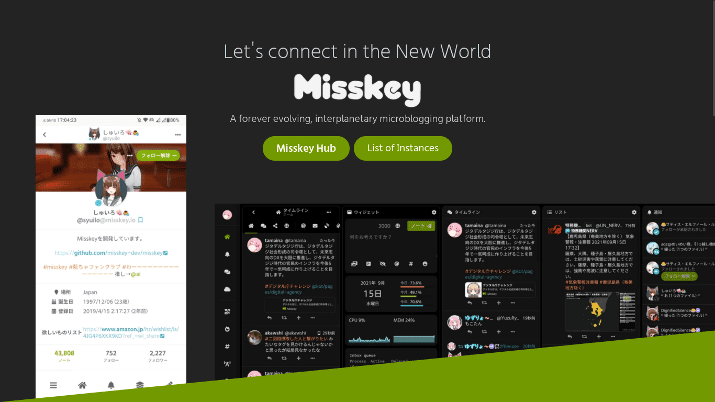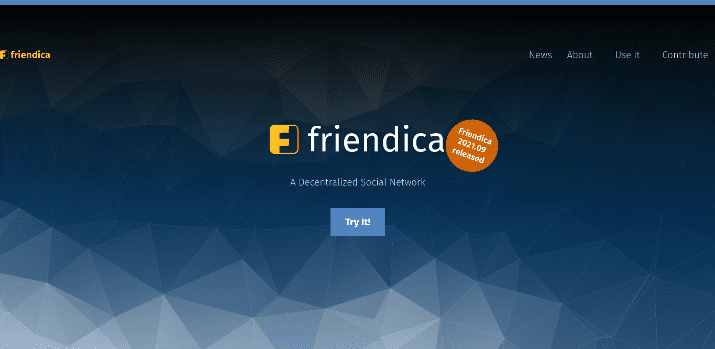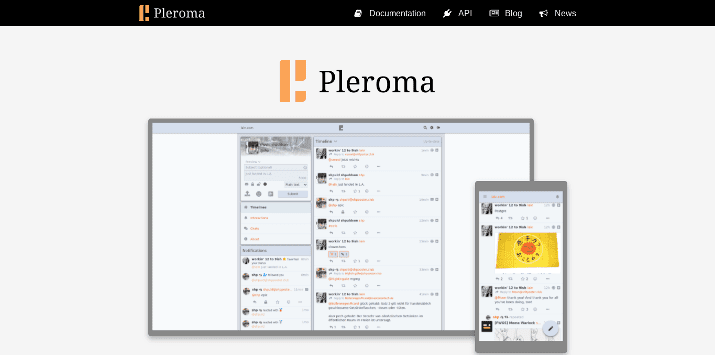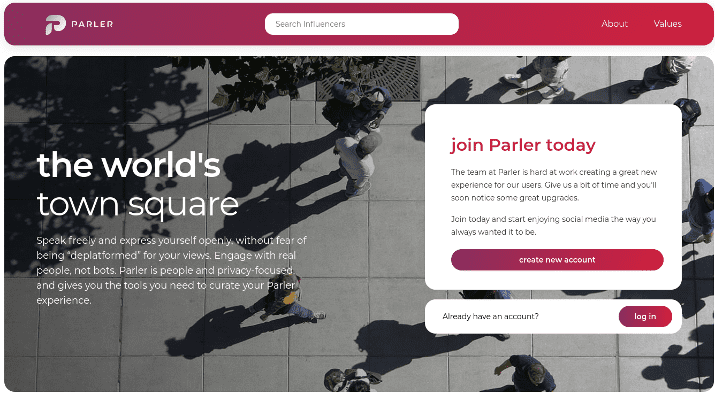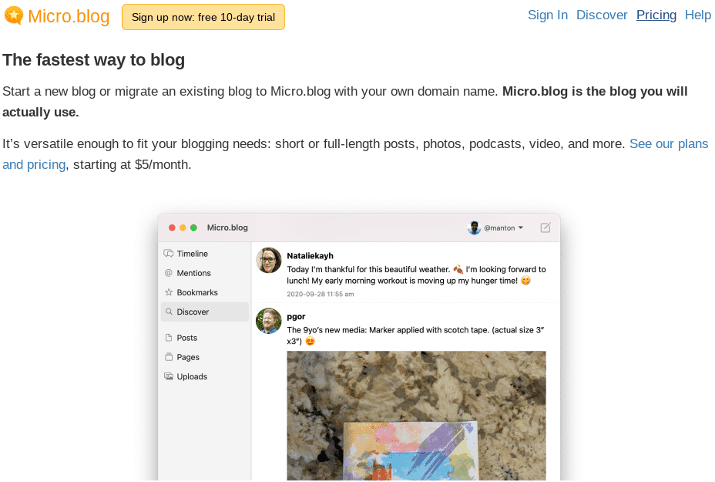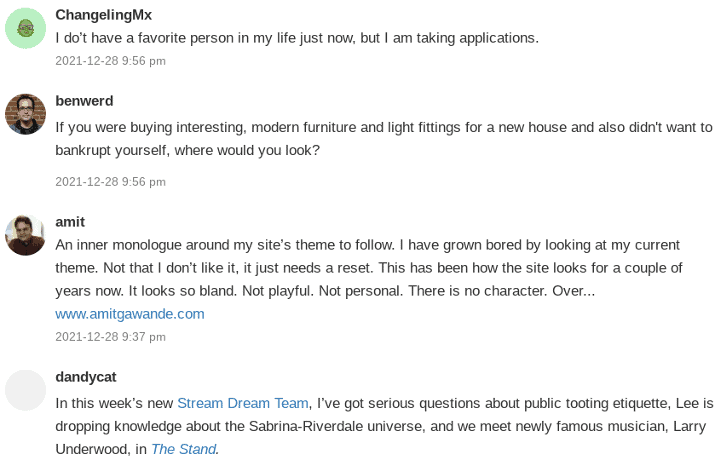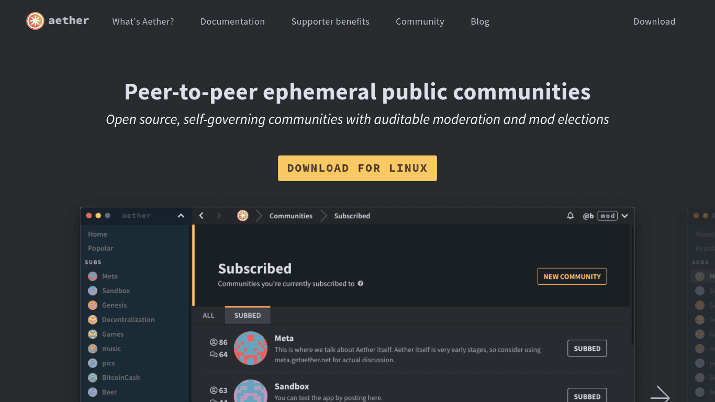While Twitter is one of the most well-known social media platforms, it’s far from the most widely used one. With around 463 million users, Twitter lags behind more popular networks such as Facebook, TikTok, Snapchat, Weibo, and Telegram.
What sets Twitter apart from platforms like TikTok is that Twitter is a microblogging platform. In other words, while networks like Telegram focus more on messaging and platforms like TikTok focus more on videos, Twitter allows people to create and publish short posts.
However, despite Twitter’s popularity, it has some problems. It is centrally controlled, which means that the owners have full control over the platform.
Sometimes, they block accounts or ban users for seemingly no valid reason. Some people don’t like Twitter’s politics, while others simply don’t like the control it has.
Twitter isn’t open source, either. It makes money by selling ads, and there are various privacy concerns about user data on Twitter.
Furthermore, all tweets have a character limit, which makes some people feel restricted in what they can express.
Many feel that the character limit on Twitter not only restricts them, but it also restricts their friends, making it more difficult to keep up with what is really happening in their friends’ lives. After all, there is only so much you can say in a short tweet, so people often end up posting insightful thoughts instead of more meaningful updates.
Regardless of why you’re looking for a Twitter alternative, you have options. Today, I will be showing you the 11 best Twitter alternatives out there.
11 Best Twitter Alternatives
1. Mastodon
Mastodon is my top recommended Twitter alternative. Like Twitter, it is a microblogging platform, a place where you can publish thoughts and short insights.
On Mastodon, posts are called “toots” instead of “tweets,” but they’re pretty much the same thing.
The difference between Twitter and Mastodon is that Mastodon is entirely decentralized and open source. While it doesn’t have nearly as many users as Twitter, it’s still probably the largest open-source and decentralized social media platform out there.
How exactly does it work? Instead of one centralized server, Mastodon is a network of different servers.
Users can set up their own servers or join existing servers.
Each server, or community, can set its own rules and moderation policies. As such, Mastodon is able to combat hate with community-based moderation while relinquishing control and allowing users to decide the type of content to allow in their communities.
There is the main Mastodon.social server, which isn’t focused on any particular niche, but many other servers are available, as well. All the servers are interconnected as nodes in a network.
The interface of Mastodon is very similar to Twitter. Profiles look similar, but users can enjoy a wide range of privacy controls.
A mastodon, by the way, is an extinct mammal that kind of looks like an elephant, hence the “toot” part (which is what posts on Mastodon are called).
There’s another reason to switch to Mastodon. By default, the character limit is 500 characters, which is a lot longer than Twitter’s character limit.
However, some people have taken Mastodon’s source code and forked it to allow even longer posts. Remember, Mastodon is open source, which means you can use it to create your own social network that looks similar to Twitter instead of simply creating a Mastodon instance.
In fact, a number of other social networks actually took their source code from Mastodon. One of them is Gab, while others include Tooter and even Donald Trump’s social network, “Truth.”
Mastodon does have an official iOS app, but various third-party apps have been available for a long time.
Mastodon is part of the Fediverse, a network of federated servers that include other open source Twitter alternatives.
All of these social networks can communicate with each other. So, even if you set up an instance on Mastodon, you can communicate with other servers set up on other decentralized platforms on the Fediverse.
2. Diaspora
Another decentralized alternative to Twitter is Diaspora, by the Diaspora Foundation. Unlike Twitter, it is distributed as opposed to centralized, with many interconnected servers, also called pods.
First, you register with a pod (or create your own pod), and you can then interact with all other interconnected pods. Unlike Twitter, you don’t have to worry about data or privacy concerns, as Diaspora gives you full control over your privacy – you can use it anonymously, without revealing your identity.
Furthermore, Diaspora doesn’t own your data or content, and it will never give any of your data over to a corporation or advertiser. You don’t have to worry about Diaspora getting hacked and your data being leaked or Diaspora handing your information over to the government.
Like Twitter, Diaspora allows you to use hashtags for discovery purposes. You can @mention people, just like on Twitter, and you can “heart” or reshare posts.
Diaspora also allows you to sort your contacts into different follower lists, so you can share some thoughts or updates with only a certain group of people. These different lists are called “aspects,” and it’s easy to add someone to an aspect.
Unlike Twitter, Diaspora aims to foster real, deep, insightful conversations. As such, it has a character limit of 65,535 characters – so you’re not limited to short posts like you are on Twitter.
One cool thing about Diaspora is that it allows you to post from Diaspora to your other social media profiles on other networks, including WordPress, Twitter, and Tumblr.
Explore: Best TweetDeck Alternatives
3. Facebook
Facebook is the most popular social media network in the world, with almost three billion users. It’s unlike Twitter in many ways.
While it has some of the same problems as Twitter when it comes to centralization, control, privacy concerns, and advertising, people still prefer it to Twitter.
First, it doesn’t limit you to short tweets. You can create long posts, short posts, video posts, live videos, image posts, and more.
Facebook is much better for engaging with friends and family and keeping up with their lives. Instead of only following people, you become friends with people, and you both see each other’s updates.
You can also simply follow a profile or page instead of becoming their Facebook friend, but you will only see public posts, not private posts, as Facebook allows you to set different privacy controls for different posts.
Facebook is a lot more visual than Twitter. While Twitter lets you post images and videos, too, Facebook lets you create image albums, making it easy to organize your life in pictures.
Facebook is also better for businesses. Businesses can set up Facebook Pages, which gives them the ability to advertise, view in-depth insights, put out new types of content (like polls), and reach more people.
On Facebook, you can create or join groups that focus on different interests. People can join a group, create posts, and comment on other posts, thus forming a community.
Furthermore, Facebook has something called Facebook Marketplace, available in some locations, which allows people to buy and sell products.
It’s kind of like Craigslist, but without the anonymity. People will be using their personal profiles, and you can leave reviews for sellers.
There is also Facebook Dating, which is available in some locations. It uses a swipe system, like Tinder, but the dating profiles are based on the users’ personal Facebook profiles.
Facebook is a lot more personal than Twitter, in general. While people can create anonymous profiles on Twitter, Facebook does require you to use your own name, unless you are creating a business page.
Nevertheless, you can create a page instead of a profile and use it as a blogging platform anonymously.
Finally, Facebook beats Twitter when it comes to messaging. There is a separate app, called Facebook Messenger, that makes messaging friends on mobile easy – there is even a Facebook Lite version for those with slow phones with limited space.
Personally, I feel Facebook is just more intuitive than Twitter. It doesn’t have tons of hashtags taking up half of each post, and it often allows for deeper discourse.
Explore similar platforms like Facebook.
4. Tumblr
Regarded by some as an ancient relic of the past, Tumblr is still an excellent alternative to Twitter. While many users migrated to Mastodon after Tumblr banned adult content, it remains a great place to find like-minded individuals who share your passions and interests.
Like Twitter, Tumblr is a microblogging platform. However, it tends to be more anonymous than Twitter.
You don’t need to use your real identity in your Twitter profile, either, but Tumblr tends to attract people who want to create a second identity or are looking for a place where they can be their true selves. On Tumblr, they can create a blog and talk about their deepest and darkest thoughts.
Tumblr doesn’t limit how long your posts can be. Due to that, many people use it as a sort of diary or journal, which isn’t possible on Twitter due to Twitter’s restrictive post limits.
The interface is clean and easy to navigate, and you can follow other users or publish your own posts, adding videos, images, links, and hashtags.
You can share posts, repost them to your own blog, or like them. There is also a messaging system that allows you to communicate with other Tumblr users.
5. 4chan
4chan is a microblogging platform that is quite unique – it’s entirely anonymous. Unlike Twitter, you don’t need to register for an account to create a post.
The point of 4chan is to keep posts and users anonymous. There are boards dedicated to different interests, like anime or business.
Anyone can create a post on any board, complete with an image and an accompanying text. The image can be a placeholder, such as a random meme, but you do need an image to start a thread.
Then, users can comment on the thread you created – also anonymously.
On the one hand, 4chan is more private than Twitter. On the other hand, that also means that it attracts trolls, extremists, and all kinds of questionable content – with anonymity guaranteed, it’s basically a free for all.
4chan does have rules, and there are some volunteer moderators who enforce those rules and ban IP addresses temporarily. However, in reality, moderation is sparse, and rules are often broken.
Also Read: Best Professional Twitter Bio Examples
6. Misskey
Misskey is a decentralized alternative to Twitter that is part of the Fediverse, a network of interconnected federated servers used for social media, microblogging, and the like. Other networks that are part of the Fediverse include Mastodon and Diaspora, both of which are mentioned above.
While Misskey only has around 17,000 users, it has quite a few communities (called instances). You can join any instance – browse them here.
Instances cover topics ranging from anime to specific countries.
Over seven million notes are already published on the platform.
Check Out: Best LinkTree Alternatives
7. Friendica
Another Twitter alternative worth considering is Friendica, which is open source and decentralized. It allows you to create a small blog, add contacts to a list, show different profiles to different people, post to other users’ walls, and more.
You can follow people, share content, and create private communities of select group members. Private one on one messaging is also available.
One cool part about Friendica is that it allows you to expire old content after a certain period of time.
Friendica is part of the Fediverse and is a great alternative to Twitter if you want something open source that is also a bit more personal.
8. Pleroma
Pleroma is a decentralized alternative to Twitter that operates on the Fediverse. Users can join existing instances or create their own, and then share short posts, sort of like tweets.
When you view a server, you can choose to see posts shared to the server or all posts that users on the server interacted with. Before deciding to join a server or instance, scroll through the messages people shared to see if you would like to join that community.
An example of a Pleroma server is the Cawfee Club instance.
Once you are logged in, you can publish posts or view your feed, which will contain posts from people you are following. Like Twitter, you can interact with posts by resharing them or liking them, and you will get notifications when people mention you.
Unlike Twitter, however, each server can set the maximum number of characters for each post. By default, it is 5,000 characters.
Explore: Best Sites Like Dribble
9. Parler
Parler aims to be a Twitter alternative that supports open discussion and free speech. It claims that it keeps all personal data confidential and that you can use it without worrying about being de-platformed due to your political views.
Parler tends to attract a different political crowd than Twitter. It uses a community jury system to determine whether users should be banned or not, but it is still centralized.
Indeed, despite its claims of free speech, it has banned some users – including its founder, according to Buzzfeed.
Parler has some influential figures who are no longer on Twitter – they either left on their own or were banned.
The Parler interface looks and works very much like Twitter. However, it is much less moderated.
While that could be a good thing, it also means it attracts certain elements of society, which has caused Parler to be taken down by Amazon Web Services and its apps removed from the major app stores. However, it has since been relaunched.
10. Micro.blog
Micro.blog is quite a fascinating Twitter alternative. It is a microblogging platform, where users can set up independent blogs, reply to blogs or posts, and follow other users to get their updates in their timelines.
The difference between Twitter and Micro.blog is that Micro.blog isn’t free.
You can use it for free, but you won’t be able to set up your own “microblog.” You will still be able to browse and reply to other blogs.
Is that a good thing, or a bad thing? On the one hand, it might seem outrageous to pay for a social media platform, considering that all the major ones, such as Facebook, Twitter, and TikTok are free.
However, when you think about it, you aren’t really using any social platform for free (except the ones that are open source and decentralized).
There’s a famous saying about social media: The social media platform is not the product; rather, you are the product.
Indeed, social media companies like Facebook and Twitter sell you to advertisers. They may sell your data, or they may take up your time with annoying ads.
When you use a platform like Facebook, you are giving away a lot of personal data. Facebook tracks your activity, even your activity on other apps, and learns a lot about you – your interests, your friends’ interests, and your demographics.
It then uses that data to make money from advertisers. Facebook and Twitter aren’t truly free services.
If you have never watched The Social Dilemma on Netflix, I recommend you take some time off to do so. You will learn a lot about social media and how social media platforms aim to get you addicted to the platforms, so you spend more time on them.
Once you realize that you are the product on Twitter, paying a small amount for an alternative social media and microblogging platform starts to make a lot more sense.
Furthermore, there’s another benefit of using Micro.blog instead of Twitter. As it is a paid service, it automatically cuts out the trolls, fake profiles, and bots that are so active on Twitter and which clutter up rational conversations with automated messages or insults.
Micro.blog is safer than Twitter. You won’t have to deal with ads, and you won’t have to worry about hateful trolls bothering you or bots spreading fake news.
It has a lot more to offer than Twitter, too – you are not limited to short tweets. Instead, you can publish short posts, long posts, videos, pictures, and even podcasts!
You don’t even have to start a blog from scratch. You can import your existing blog from WordPress, Tumblr, and Medium, and even redirect old URLs to your new microblog.
Micro.blog is run by a small team of people who believe in what they are doing. Pricing starts at $5/month for your own blog or $10/month for video and podcast hosting; you can always see updated pricing here.
11. Aether
Another interesting Twitter alternative is Aether, which is a decentralized peer-to-peer networking platform. It allows people to set up and join communities.
Aether has some really intriguing features. For example, posts get automatically deleted after six months – content will only stay alive longer than that if someone saves it.
In other words, if a post contains useless information, it will eventually be deleted.
Aether lets communities set up their own moderation policies, giving users more control and avoiding centralized censorship. However, unlike Twitter, moderation is open and transparent.
That’s because when content gets deleted, you can see exactly who deleted it and why they deleted it. In addition, there is a process for getting that content back, when warranted and appropriate.
Furthermore, communities can vote to impeach moderators if the moderator is out of control and remove posts when it isn’t right to do so.
Users can also block mods locally, which will revert changes made by that mod for that user.
This aspect of community control – voting, elections, and ballots – is something that Twitter and almost all other social media networks are missing. Users can elect and impeach moderators all the time – votes are always ongoing, and nothing is set in stone.
However, to make elections fair, only users who have been posting in and contributing to the community for at least two weeks to six months can vote. In addition, at least five percent of such people must vote in an election for it to be valid.
Also Read: Best Sites Likes Deviantart
Wrapping It Up: What Is The Best Twitter Alternative?
The best alternative to Twitter is Mastodon. It is open source, decentralized, and protects your privacy.
At the same time, it is the most similar to Twitter out of all decentralized social media networks, and it is also the most popular. You can find servers related to any niche or interest.

Benjamin Levin is a digital marketing professional with 4+ years of experience with inbound and outbound marketing. He helps small businesses reach their content creation, social media marketing, email marketing, and paid advertising goals. His hobbies include reading and traveling.

